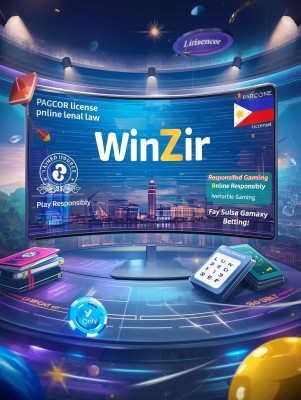Online gambling laws in the Philippines has undergone significant transformations in recent years. From the rise of Philippine Offshore Gaming Operators (POGOs) to the nationwide ban on such operations, understanding the current legal landscape is crucial for both operators and players. This guide delves into the key regulations, licensing bodies, and the future of online gaming in the country.

1. Evolution of Online Gambling in the Philippines
The Philippines has long been a hub for gambling activities, both land-based and online. In 2003, POGOs were established to cater to international markets, particularly China, where gambling is prohibited. These operators were licensed by the Philippine Amusement and Gaming Corporation (PAGCOR) and the Cagayan Economic Zone Authority (CEZA), under Republic Act No. 7922, which empowered CEZA to regulate economic activities, including gambling, within the Cagayan Special Economic Zone and Freeport.
However, in July 2024, President Ferdinand Marcos Jr. announced a nationwide ban on all POGOs, citing concerns over illegal gambling activities, human trafficking, and other criminal offenses associated with these operations. Executive Order No. 74, issued in November 2024, mandated the cessation of all offshore gaming operations by December 31, 2024.
2. Key Regulatory Bodies
Philippine Amusement and Gaming Corporation (PAGCOR): A government-owned and controlled corporation responsible for regulating and operating all games of chance in the country.
Cagayan Economic Zone Authority (CEZA): Regulated offshore gaming operations under Republic Act No. 7922 until the nationwide ban was enforced.
Anti-Money Laundering Council (AMLC): Tasked with preventing money laundering activities, the AMLC collaborates with PAGCOR and other agencies to monitor and enforce compliance with anti-money laundering laws across the national gaming industry.
Games and Amusements Board (GAB): Oversees the regulation of professional sports and other amusement activities, including certain gaming operations.
3. Legal Framework and Licensing
Under the previous regulatory framework, online casinos and slot games were legal if licensed by PAGCOR or CEZA and directed exclusively at foreign players. Operators were required to implement measures such as virtual private networks (VPNs) or geo-blocking to prevent access by Philippine IP addresses.
However, with the enforcement of Executive Order No. 74, all offshore gaming operations, including those previously licensed by CEZA, are now prohibited. This has led to the closure of numerous gaming establishments and a reevaluation of the country's approach to online gambling.
4. Combating Illegal Gambling Activities
The Philippine government has intensified efforts to combat illegal gambling activities. Presidential Decree No. 1602 classifies illegal gambling activities such as "jueteng" and "masiao" as criminal offenses, with penalties ranging from fines to imprisonment.
Additionally, the AMLC plays a pivotal role in monitoring and investigating suspicious financial transactions related to gambling activities. Institutions involved in gambling are required to report transactions exceeding PHP 500,000 to the AMLC, which may lead to the freezing of funds pending investigation.
5. Future Outlook
The future of online gambling in the Philippines remains uncertain. While land-based casinos continue to operate under PAGCOR's regulation, the ban on offshore gaming operations has disrupted the online gambling sector. The government's focus is now on enhancing the integrity of the gaming industry, ensuring compliance with anti-money laundering laws, and protecting consumers from fraudulent activities.
For individuals interested in legal online gaming options, it's essential to stay informed about the latest regulations and ensure that any platform used complies with Philippine laws.
Conclusion
The landscape of online gambling in the Philippines has experienced significant changes, with stricter regulations and a focus on combating illegal activities. Understanding the current legal framework and the roles of various regulatory bodies is crucial for anyone involved in or interested in the online gaming industry. As the situation continues to evolve, staying informed and compliant with the law will be paramount.
For those seeking a legitimate and regulated online gaming experience, consider exploring platforms that operate within the legal framework established by PAGCOR. Always ensure that any online gambling activity is conducted through licensed and reputable operators to guarantee a safe and secure environment.